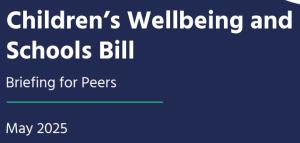In March 2020 schools across England closed for nearly all pupils. Those allowed to attend rarely did, and even a partial re-opening of schools in July saw a peak school attendance of just 17.5%. By the time schools re-opened in September, 575 million days of school had been missed by children in England. The impact on children – particularly those without the technology, space and support at home to learn remotely – was enormous.
Since September, the overwhelming majority of children have returned to school, as outlined in a previous briefing from the Children’s Commissioner. Attendance rose throughout September, plateaued during October, dropped slightly in early November, and now appears to have levelled out again. While the numbers out of school are greater than at this time last year, they are tiny compared to Summer Term 2020.
Perhaps most importantly, most children are happy and excited to be back to school, as demonstrated by our survey of 1,500 children in September. If anything, they are most likely to be worried how to catch up on the education they have missed.
Despite this, the continued opening of schools remains contentious. Some have called for all schools to be closed on the basis that the virus is ‘running riot’ through schools and posing an unacceptable risk to staff. Others have argued that closing schools is necessary to suppress the virus to enable the wider opening of the economy, in particular pubs and restaurants. Others have argued that school attendance has ‘collapsed’ to such a point that the continued opening of schools to all children was not viable. Some are now arguing for the Christmas holiday to be extended to delay the start term in January.
The evidence we have analysed for this briefing does not support these conclusions. Instead, we find the reopening of schools to have been highly successful and that, given the increasing prevalence of Covid-19 in the community, schools have done a remarkable job in limiting transmission. Keeping schools closed for longer in January would also be a mistake – sacrificing children’s learning and wellbeing in order to prioritise other sectors of society such as gyms and shops. It would also be a choice rather than an inevitability, and one that does not put children first.



